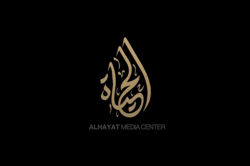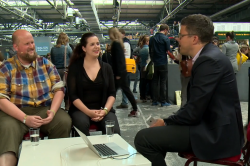secret.jpg

How are whistleblowers perceived in different countries? Does digitisation lead to surveillance capitalism? Are blogs and social media a catalyst for democratic change in authoritarian states? What does Europe have to say about how cyber conflicts should be tackled? In the lead-up to the re:publica conference and under our Finding Europe heading, we will put out a bi-weekly review of key debates on these and other issues in cooperation with our media partner euro|topics, with voices from the press and websites of Europe. Our first contrubtion deals with whistleblowers in a European context.
Besides director Laura Poitras, the Oscar for the documentary Citizenfour honours whistleblower Edward Snowden for his courage. In the European media, however, debate also focuses on whether whistleblowers are actually playing into the hands of enemy powers.
No one knows who he is: under the pseudonym Fuat Avni, a whistleblower has been making life difficult for the powers that be in Turkey for months. Time and again he has predicted the arrests of government critics on Twitter and Facebook – hitting the nail on the head each time. Observers believe the whistleblower must be a person or group in the immediate entourage of President Erdoğan, but at the same time a supporter of the preacher Fetullah Gülen.
The government accuses Erdoğan’s former ally Gülen and his movement of plotting its downfall. The pro-government newspaper Yeni Şafak believes the whistleblower is working hand in hand with putschists: “A lot of mudslinging goes on in the social media, and there are many people like Fuat Avni. The only difference is that a number of people and their organisations are only too happy to praise Fuat Avni and claim that whatever he writes must be true. Their aim is to destroy the political and economic stability of our country so as to bring it under their control.”
Irrespective of the interests that lie behind Fuat Avni’s leaks, other whistleblowers are also regularly accused of acting in the service of enemy powers. The conservative newspaper The Daily Telegraph, for example, worries that the Snowden documents could fall into the wrong hands: “If countries like Russia and China were to gain the advantage at our expense, or groups such as al-Qaeda launched a successful terror attack, then Snowden’s treacherous betrayal might not seem to have been such a good idea after all.”
The left-liberal daily The Guardian, in contrast, defends the acts of whistleblowers on the grounds that government intelligence agencies “keep things hushed up for exactly the same sort of reasons that affect less exotic institutions – concealing cock-ups, and avoiding daylight falling on things that ought not be happening at all. … And from Iraq to waterboarding and mass surveillance, whistleblowers within the security state, too, have more often than not ended up being vindicated.”
And when external controls fail to properly monitor public institutions what is needed is evidence from within, columnist Simon Jenkins concurs in the same newspaper: “As organisations and, above all, government get ever more powerful, making them account for their activities becomes ever harder. All dealings between individuals require a degree of confidentiality, but, especially in public bodies, the line between secrecy and transparency must be patrolled. If it cannot be patrolled from outside – if misconduct is rife – the last resort is from within.”
In any case the control function of whistleblowers can only be fulfilled when they are protected. For that reason France needs an independent institution that whistleblowers can turn to with their secrets, William Bourdon – the lawyer acting for Luxleaks whistleblower Antoine Deltour – and the Socialist member of the French National Assembly Yann Galut argue in the left-liberal magazine L’Obs: “This institution would provide the opportunity for a confidential dialogue with whistleblowers. It could filter the information, pass cases on for prosecution if need be and in exceptional cases guarantee immunity to those who can demonstrate that they had no other choice but to reveal certain legally protected secrets to denounce the worst transgressions against the public interest.”
Snowden referred his documents to journalists who then verified and evaluated them. But what if a country has no independent reporting, and hence no way for journalists to assess the information that whistleblowers provide? In view of the difficult situation faced by established media in Turkey and the substantial credibility enjoyed by Fuat Avni’s leaks in Turkish public life, columnist Aydın Engin worries in the Kemalist daily Cumhuriyet that individuals can wield excessive influence:
“The man disseminates short blurbs from within the state apparatus passed on to him by people high up in the governing party AKP. His sources? Unclear. How can this information be verified? It can’t. … Basic elements such as who, what, where, why, how, when? Either they aren’t known at all or only in part. Does that mean Fuat Avni is our only source of news on what is going on? I prefer to get my information from the real media, and from reporters who respect the basic ideas and values of the profession.”
euro|topics

Twenty-six foreign correspondents follow the key debates in Europe and comb through the commentary pages of influential media for the euro|topics international online press review. All the selected opinion pieces are available in German, English and French. The eurotopics press review has been contributing to the formation of a European public sphere since 2005, and has a constantly growing archive of more than 30,000 commentaries. An index of roughly 500 newspapers, online portals and blogs provides broad access to Europe’s media landscape. The journalists’ network n-ost has been producing the daily press review on behalf of the German Federal Agency for Civic Education since 2008.
For more information see www.eurotopics.net



